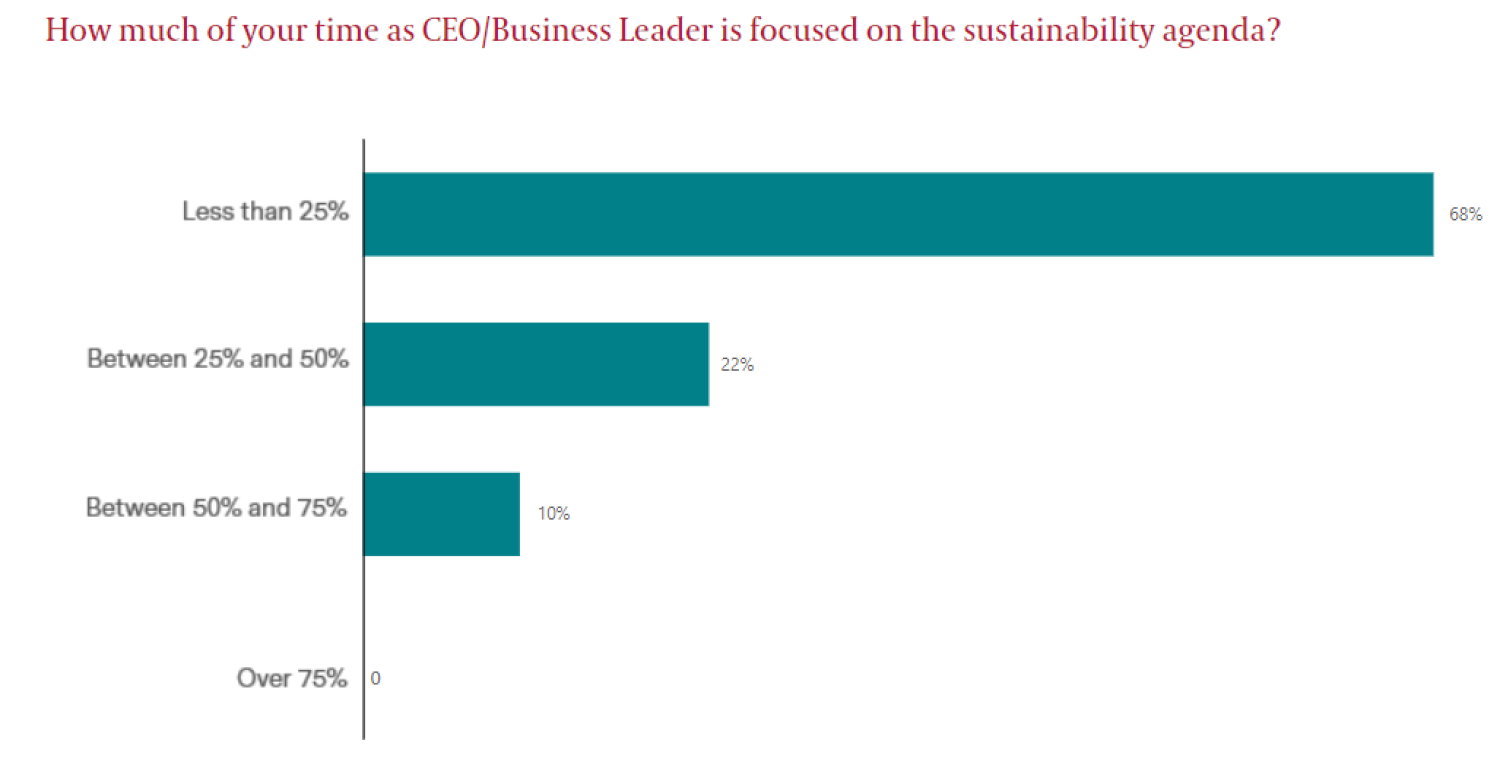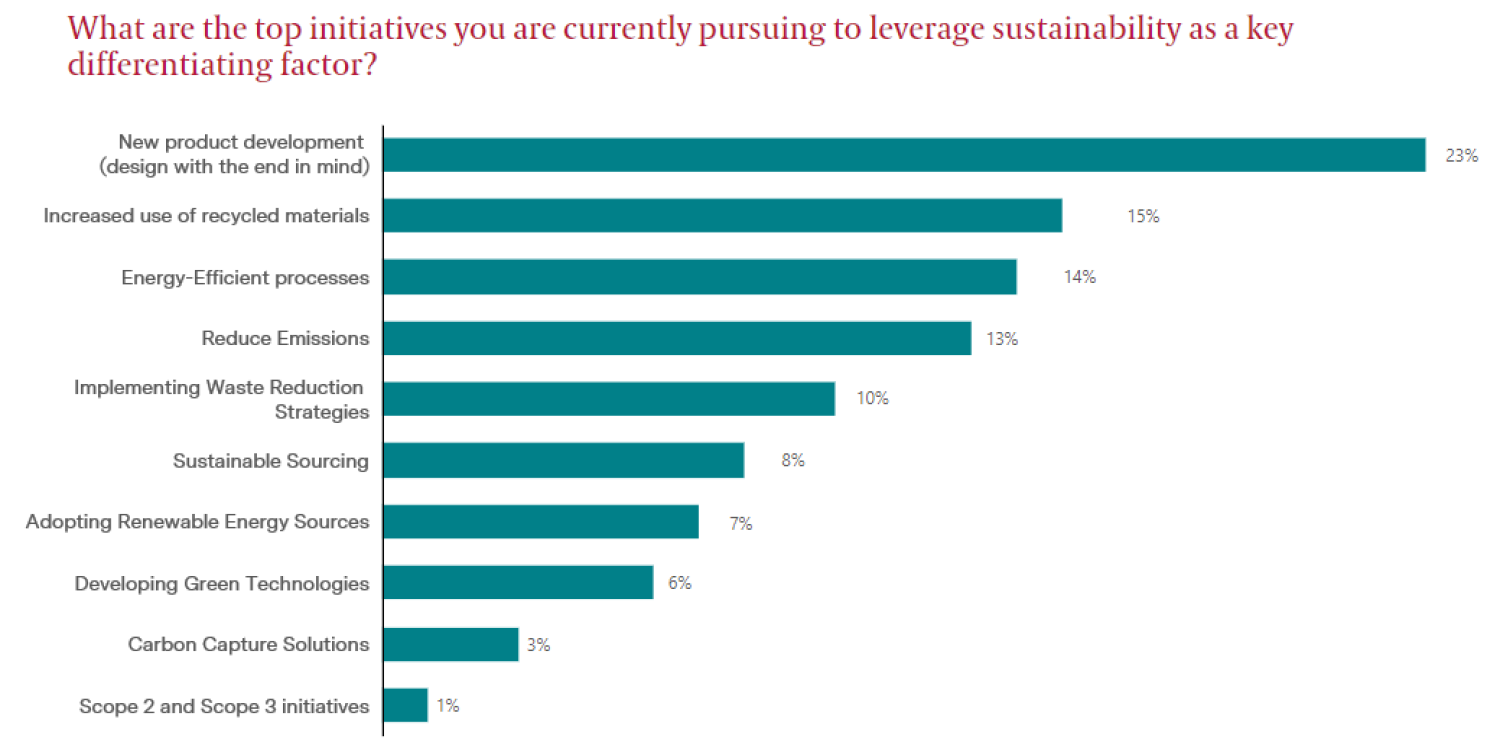Egon Zehnder’s 2024 Process Industries Forum brought together 70 senior leaders to discuss sustainability in the chemicals and process industries. Board members, CEOs, CFOs and CTOs shared their perspectives, shedding light on the challenges and opportunities within the sector.
The State of Sustainability
Despite efforts in recent years, the global carbon footprint continues to rise. A significant factor contributing to this issue is the limited time senior leaders can dedicate to sustainability. Our survey revealed that only 25% of their time is spent on sustainability initiatives.

In addition to a lack of time, another barrier lies in complex reporting structures. With multiple reporting frameworks available, the level of resources required, and pressures from regulators and customers, companies are bearing a heavy burden to deliver. Addressing these issues requires ongoing efforts to develop more streamlined, standardized, and effective sustainability reporting frameworks, as well as fostering greater collaboration among regulators, industry groups, and stakeholders.
Strategic Opportunities for the Industry
While leaders may not be able to give as much attention to sustainability as they would like, that level of attention is likely to grow as more companies see the opportunities sustainability can bring. Our survey found that the energy transition and using recycled materials offer the most opportunities for differentiation.

Dedicated Sustainability Committees on Boards
Sustainability is a major area for boards to oversee, and establishing a dedicated committee can help to better align sustainability strategies with overall organizational goals. This is becoming more common. An Egon Zehnder report from 2022 shows that in a sample of 1,260 board members of the top 100 listed companies globally, 80% of companies had a relevant ESG committee.
Shifting Focus to Scope 4 Emissions
While companies have been focusing on Scope 1-3 emissions, the forum highlighted the importance of looking beyond these and truly focusing on Scope 4 reduction. Scope 4 emissions, or avoided emissions, represent the potential to reduce emissions across the value chain by implementing innovative products and processes that lower overall emissions. By prioritizing these efforts, companies can contribute more significantly to global emission reductions.
How Sustainability Impacts Talent Attraction and Retention
To truly harness the opportunities of sustainability, companies need the right talent in place—both today and tomorrow. Our survey found that a staggering 90% of leaders believe that their organization’s talent pipeline is “not very deep.”
In addition, large companies are now competing with start-ups to attract the best young talent. Leaders at the forum emphasized that incorporating venture capital activities into the innovation agendas of large companies is crucial for driving future growth.
To attract and retain talent, companies must develop a clear and compelling sustainability proposition that motivates people and makes them feel they are making a difference in their daily work.
Delve Deeper
- Get in touch to join us at the 2025 Process Industries Forum: Don’t miss the opportunity to be part of the next wave of sustainability innovation.
-
Learn more about our Chemicals and Process Practice. Explore how our expertise can help your company navigate the complexities of sustainability and drive meaningful change.





